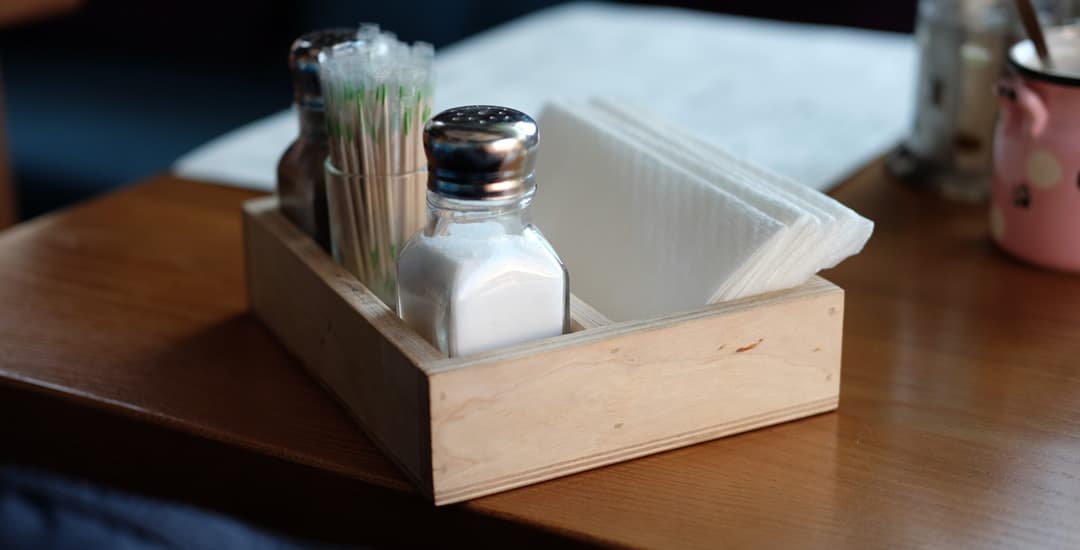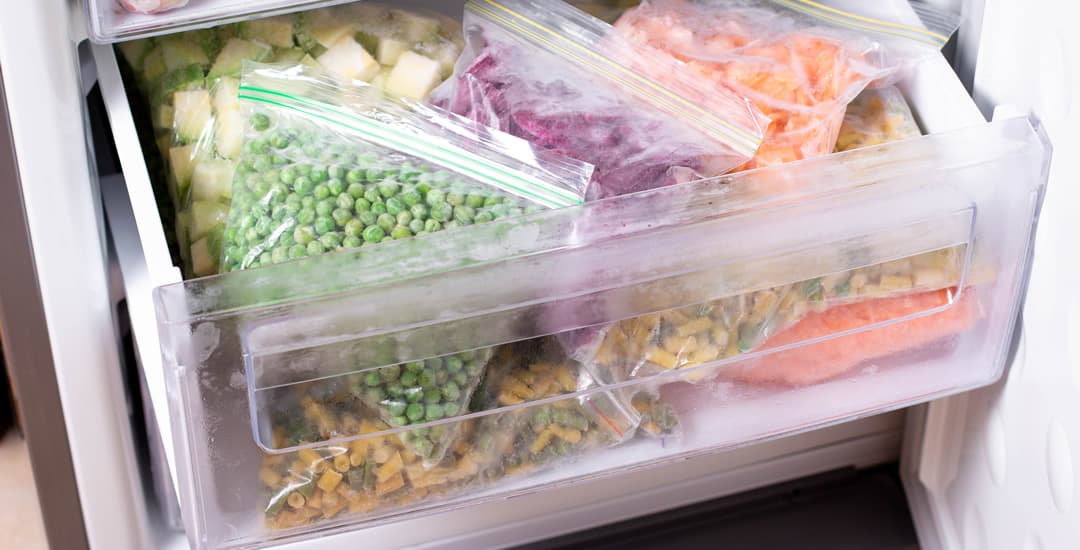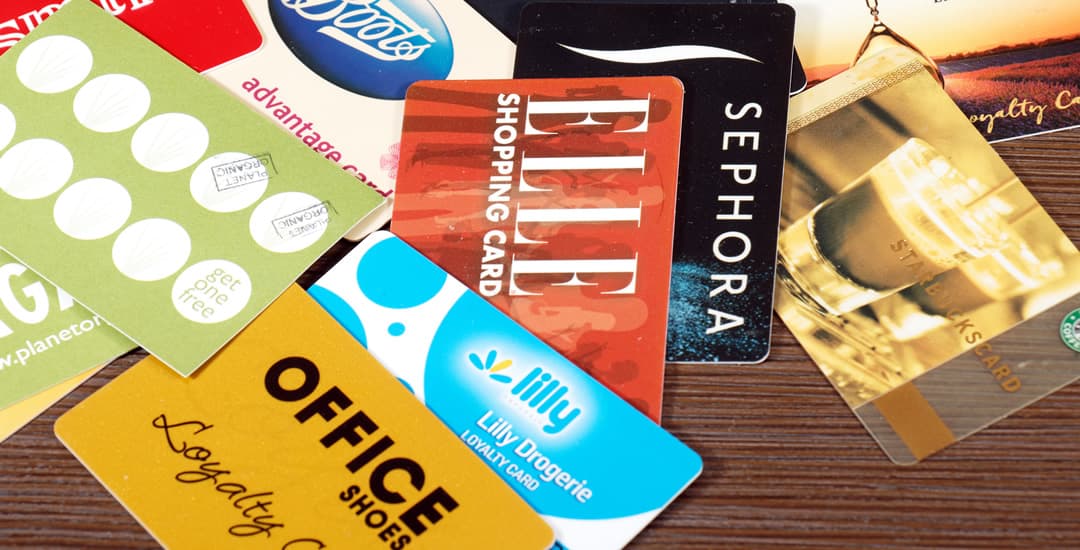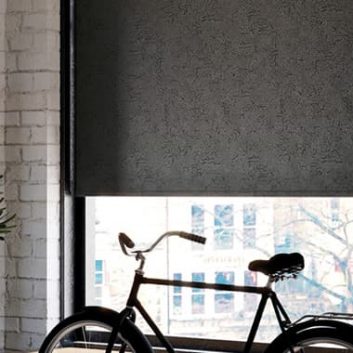
(Whether they are wackadoo or genius depends on your perspective, and only a couple of them are perhaps morally questionable or potentially borderline illegal)…
I’ve always been really into dystopian thrillers; or at least I was, right up until I realised that we’re actually living in one right now. Seeing an advert for a quiz on This Morning in which the prize was money towards your household energy bills was honestly deeply shocking to me when I realised it really wasn’t meant as a joke or social commentary; even being as I am just as aware as everyone else that things are Very Not Good in the cost-of-living stakes at the moment.
Even for those of us that are lucky enough to know that we’re almost certainly going to be ok if we’re sensible and keep an eye on our spending, winter 2022 and the months and even years to come aren’t looking too clever for most of us.
I’m painfully aware that for many people, some of whom I know personally, the cost of energy bills and food and literally everything else is absolutely terrifying already, and only getting worse.
I’m not making light of any of that; not least because I don’t find it in any way funny. However, anyone who is looking for ways to save money or reduce their outgoings and so on has surely already read the same standard batch of tips and advice five or six times already; and the fact that the same sort of advice is repeated so widely and often is obviously because it is sound and useful, and valuable.
But if you’ve done all that, have invested in a Slanket and a hot water bottle and so on and are looking for tips that come at things from a different angle, play a longer game, or that take a bit more of a lateral thinking approach, welcome, come in and take a seat.
Behold:
Polly’s twelve moneysaving tips that you (probably) haven’t already read elsewhere, a couple of which might be somewhat morally questionable but on the plus side, I’m sure-ish aren’t actually outright illegal.
And whilst this content is designed to be somewhat entertaining, it’s not a parody; all of my tips are actually sound and potentially do/will save you money, even if only a little in some cases.
Oh and just one thing before I get going; not a single one of them mentions or bears any relation to “window blinds, buy my lovely window blinds,” but if you do want to buy some blinds seeing as you’re here, these will actually save you money in the long term as well.
Contents:
- 1. Stop using water, you big waster.
- 2. Unplug everything, including potentially your fridge.
- 3. Use other people’s electric to charge your crap up.
- 4. Spend more in the pub and less on the heating.
- 5. Tactically join a gym to make savings worth more than the membership outlay.
- 6. Never pay for condiments ever again.
- 7. Or kitchen roll.
- 8. Cut your food bills in half by using apps like Too Good to Go.
- 9. Freeze everything in sight if Google says it ok
- 10. Use your bank/card providers for bonuses and extras.
- 11. Don’t fall into the loyalty card points trap.
- 12. Go skip diving for new goods, sell everything you don’t want on Vinted.
1. Stop using water, you big waster.

Turn the water off. I mean, not entirely, and not for good? But most of us waste a lot of water and this costs. If said water is hot, it costs even more, like you may as well be setting fire to £10 notes, y’all.
In fact, sidebar, over a decade ago I bought a narrowboat, which could politely have been described as a “fixer upper.” Partially because I was poor and partially because I had weird ideas about what I wanted from life, but anyway.
On boats of this type (i.e., non-houseboats), you have a water tank that you need to fill up from shore facilities, which means finding and getting to them, and this tends to make you very frugal with your water usage for obvious reasons. So much so, in fact, that it is a point of pride among some boaters to have no more than one shower a week, whether they need it or not.
I never went down this route, I shower every day without fail, but I could in theory make a 300l water tank last me for ten days of really careful usage. Yes, just 300l in total for showering every day, washing up and so on, for ten days. Seriously.
I mention the boat thing specifically because I feel well positioned to share this tip as a result, and because Things I Learned Off Grid (like having to supply my own water, empty my own toilet, carry my own heating fuel, and generate my own power) have served me well in many situations in everyday life where saving money or resources is desirable, either due to practical reasons or for financial ones.
Back to the actual point of this point then; saving water. First up, get a water meter. Even if you don’t actually make any changes to how you use your water, assuming you’re just a normal person/family, this immediately seems to save most people money.
To actually reduce your water usage though, literally only have water running when you need it.
Brushing your teeth? Turn the water off other than when rinsing. Showering? Get soaked, turn the water off. Lather, turn the water on to rinse. And so on. Assuming you have a fairly powerful shower, you can probably blast all of the soap and shampoo off you inside of 20 seconds, and you might want to get one of those shower heads/fittings that reduce your water consumption too.
I have a shower head fitting with a button on it that stops and starts the water flow without actually turning the shower off each time; these go for a tenner or so on eBay and can negate any issues you may otherwise have with the water running hot and cold if you keep turning it on and off at the wall.
Wash up once a day with only as much water as you need, do your clothes washing only when needed and on eco mode if you fancy it, and try not to waste water whilst say, waiting for a tap to heat up to wash up with. I literally stick a pan or something under it when it’s running cold to get water for later cups of tea or pasta cooking and so on.
On aforementioned boat, I even saved the cold water from the shower heating up and used it to fill the flush tank of my toilet. I have less of the pioneer spirit these days and a far greater appreciation for mains plumbing than I did before I had the boat, but said boat definitely taught me some good habits that still save me money now and that I don’t even have to think about anymore.
Hopefully you’re still here…
2. Unplug everything (maybe even your fridge)

Aside from your WiFi router, apparently. I have been reading that keeping turning the WiFi on and off actually uses more power or something. As for everything else? Standby mode is stealing your money and wasting your resources, and should be stopped. Nothing needs to have a little light on eating your power when it’s not doing anything. Turn it off.
The fridge thing? My fridge is a bit overenthusiastic and doesn’t have a great range of temperature adjustment, and if left to its own devices, it makes things colder than you’d really like. Solution? I fill the freezer box with freezer blocks that freeze over the course of the day, and turn the whole thing off at night.
Unless I open the fridge several times before the morning, it will absolutely stay cold enough while turned off to keep everything chilled for well over 12 hours at a time. This may work for you, but if not then simply not setting your fridge’s thermostat to be overly cold saves energy, as does ensuring adequate ventilation around your freezer so it doesn’t have to struggle to stay cool.
Similarly, a tip that you may well have read elsewhere but that I’m going to mention anyway is to boil your kettle and fill a flask with the water you aren’t using immediately, and use that for your hot drinks throughout the day instead of keeping boiling the thing.
3. Charge stuff up at work (or anywhere else you can find an unsupervised plug point)

Got a job? Cool. They’ve probably got electric, right? Awesome. Now, don’t take the Mickey (even if only because you might get hauled before the boss/P45 issuers) but charging your phone and probably tablet or kindle or even laptop is probably fine in the workplace… You’ll likely get away with things like ear pods too.
If you’re going for a coffee or something, some places have sockets within reach or even deliberately provide plug points (Starbucks in particular proactively provides tonnes of plug points for customers) so stick your phone or whatever you’re carrying in them at every opportunity.
You can even buy USB rechargeable electric hand warmers and heat pads, and I’d be fully up for charging them under my Starbucks table too.
4. Spend more time in the pub/café/round your mate’s place

Money saving advice that advocates for going to the pub is moneysaving advice that most of us can get on board with. However, sinking ten pints in four hours probably isn’t actually going to see you back into the black… Sorry.
That said, given the ridiculous cost of home heating/energy and even the cost of food, there are scenarios in which at times, it may actually be cheaper to pay for say, a beer or a coffee at a cheaper establishment and malinger enjoying warmth that you’re not paying for than it is to sit with the heating on at home with a brew you made yourself.
If you’ve got friends that are always dropping in on you and vice versa, plan this a bit better so that you turn off (or down) your own heating or whatever before you bail to use theirs for a couple of hours and they can do the same. Or just move in together maybe?
There are also a number of places actively marketing deals to allow people to basically spend some time but very little money on staying warm and so on. Asda cafes have launched a new scheme in which for £1, over 60s can have a bowl of soup and a roll as well as bottomless tea and coffee. For a quid, that’s hard to knock and will definitely help a lot of people who make use of the offer to save some money on home heating and/or help to stay warm.
Oh, and whilst you’re wherever it is you are, charge all of your stuff up too (only maybe not at your mate’s place, because this might be a bit of a stretch on the elastic of your friendship if you’re caught out tactically visiting repeatedly on a three-day cycle when your Ipad battery needs a top-up).
5. Join the gym

Even if you don’t actually like the gym. This is perhaps the most convoluted and yet biggest moneysaving tip overall for me, and it could be for you too, depending on where you live and what gyms are available and what they offer in terms of unintended perks.
Eh?
First up, let me get the basic fact out of the way that if you go to the gym and actually use it as intended, you’ll get fitter and improve your health, two things that can potentially save you money in healthcare and so on longer term.
Also, you’ll definitely be warm. Unless you join or go to an unheated gym; these do exist, and are the devil. These points are probably self-evident and a bit of a let-down, but bear with me as they’re not the point of this entry.
Step one in terms saving money by means of the gym is to find out what gyms there are in your area, in terms of where they are (and so how easy/cheap to get to) when they’re open (there are several 24 hour gyms and chains these days) and how much they are.
Most of the national gym chains of the basic/practical fitness type (less so the fancy health club/spa places, which cost more but that can still pay for themselves depending on how you use them) offer memberships from around £20-£25 a month.
WHAT’S THE SAVING??? Or rather, how am I suggesting that spending £25 a month more than you are now can save you money?
Now, full disclosure, I’m a gym fanatic; I do the gym five or six days a week unless I have something better to do, but this is more about wanting to eat like a pig than actually enjoying working out.
What I’m saying is, for me, the savings I make by paying for a gym membership are more of a happy accident than deliberate, but also, you can still potentially make said savings anyway if you go often enough, even if you don’t really do a meaningful workout or even plan to work out at all.
The gym I use costs me £25 a month, but there’s also a £20 per month option.
Savings?
Showering.
GoCompare reckons that using an electric shower for 10 minutes currently costs 50p a go.
Hair drying.
I reckon it takes me about ten minutes to dry my hair each time (I have long hair) and I wash/dry my hair every time I shower. Confused.com has it that this costs around 5p a minute, or again, 50p a go for me personally.
So that’s a total of £1 saved for every day I shower/dry my hair at the gym as opposed to at home. Or just 50p a time if you’re bald.
Charging things up.
I charge my phone on the treadmill whilst I’m using it; there are also plug points in the changing rooms and member lobby, so even if you’re literally going to use the peripheral facilities and not do a workout, you can do the same. I don’t know what this costs and I assume it’s not much, but I still get a smug feeling from knowing that charging my phone is not adding to my household energy bills.
Parking.
The gym I currently use plus the gym I formerly used in another area were both in town centres with no free public parking. Parking costs were around £1 per hour.
Both of my gym memberships gave me free parking at the gym, right in the town – at my current place, this is for up to three hours a day and you have to log your numberplate (again, you are not obliged to perform a work out to do this, you’re a paying member and entitled to just go in and out at leisure, you will not get into trouble with The Treadmill Police) and in my prior place, you got unlimited parking all day just by sticking your gym membership card in your car window where others put their car park ticket.
Essentially then, at the very least, my gym membership is worth three hours/£3 per day in parking costs for the town, so even if you only used this a couple of times a week to shop rather than work out, that’s £6 per week saved, possibly a lot more.
Savings and expenditure:
Total monthly cost of my gym membership: £25.
If I go to the gym six days a week this is £6 a week/£24 per month saved on showers and hair dryer-ing.
Car park fee savings at £6 per week (conservatively) is another £24 at least per month.
That’s not even including the savings made by charging my phone up at the gym and the time I spend there during which I’m not heating my own home.
Net profit/saving: £23 a month minimum.
Oh, and I get to actually use the workout facilities too, which is just an added bonus… To reiterate, you don’t have to do this. As a paying member, you can use any of the facilities included in your membership, or none. You can go and shower without doing a workout, and loads of young women who work in the town seem to do just this on Friday night when they want to go out clubbing without going home first; and again back to the boater thing I mentioned earlier, showering in gyms is a boater hobby without equal.
6. Nick condiments from everywhere

Entering the realms now of the “might end up as a Reddit AITA question” territory; never buy condiments again if you just grab a handful extra every time you get a takeaway, café meal, or have a coffee when out. Obviously clearing out the container or filling your bag is probably going to get you banned, but nobody cares if you take a few each time.
If you get though as much salt as I do, this might represent a significant saving.
7. Serviettes are also totally up for grabs

Grab a handful of serviettes at every available opportunity too, and that’s your kitchen roll spend negated. Also suitable for use as tissues (but not as bog roll as they’re too sturdy).
8. Eat for cheap with Too Good to Go and similar

Too Good to Go is an app that all kinds of food service places from pubs and restaurants to Spar and Coop to Starbucks and Greggs use to sell off their excess stuff at the end of the day for cheap.
Basically, each venue offers a “Magic Bag” of mystery goods (a broad guide is given, such as if it’s hot food, groceries, cooked meals, whatever) and the value of the Magic Bag is always at least four times the price you pay for it.
I’d say as an average, most Magic Bags cost around £3 for over £12 worth of swag (and often a lot more).
The catch? There isn’t a catch as such, other than that the quantity each day is limited, and they sell out fast when they become available; and you have to collect the goods within a set window of time, which is usually just a couple of hours and tends to be in the evening (other than for places like bakeries and places that do hot lunches).
Also, what’s in the bag is a mystery and you get no say in it, so theoretically you could get a bag with absolutely nothing in it you like (though obviously you can limit the chances of this by say, not picking a bag from Greggs if you’re not into baked goods, and not signing up for a carvery takeaway if you’re veggie).
You can save money and get value out of this if you go about things in a certain way, which I admit, does depend a lot on having the luxury of being able to do so. What I mean is, the £3 cost of a grocery Magic Bag will almost certainly provide goods to the equivalent value of probably four meals, but the component parts in the bag alone might not work together in such a way as to make four meals.
So if your £3 spend is what you have as your entire food budget for that day, you may be taking a gamble if you’re a picky eater and don’t have stuff at home to combine/supplement a Magic Bag with.
But if you have back up options and other ingredients in, and/or are willing to freeze stuff that comes in your Magic Bag for later (I once got a 6 pint container of milk with 24 hours left on the “use by,” and not only do I live alone but it literally would not even physically fit into my fridge until decanted down!) and you get Magic Bags regularly, you can potentially get all of your meals at an absolute fraction of the usual cost.
You aren’t limited to one Magic Bag a day either, you can have two or more from the same or different places, as long as there is availability.
Basically, if you have some breathing space/wiggle room if the goods you get aren’t useful on their own or right away and are creative, Magic Bags are a total winner for eating on the cheap.
Plus of course, if you have some funds for treats, paying £3 for £12 or more of Starbucks cakes is the set-up for an awesome binge night to top things off once a week or so.
9. Freeze everything

I feel as if I spend half my life Googling some variant of “can you freeze…” and more often than not, I learn that I can, if I do it in a certain way or whatever.
This means that I’ve managed to cut my food waste and so, food spend by a ways, and I have also got into the habit of batch cooking, basically making something like a goulash or a stroganoff (ok I’m not going to lie, these are actually the only two dishes I know how to make in bulk) and freezing portions of it for later meals.
Batch cooking is also an economical way to cook in itself. Oh, and if you do take my advice on signing up to Too Good to Go or similar, loads of stuff you haul in from there can live in the freezer for a bit too.
10. Check for cashback extras and loyalty card deals

Getting a credit card to help you to pay for stuff you can’t really afford is… Not ideal, and definitely not something I’d advise, as it will definitely cost you more in the long run and possibly harm your credit rating. I say this from a place of some experience, as when I was 18 and earning about £250 a week, my bank inexplicably decided that I was a sound bet to throw some £8k of credit at and boy did I ever agree with them on that count. Turns out, neither of us were right, and it took me the best part of a decade to both pay back the amount borrowed plus interest, and also undo the damage to my credit rating this caused.
But anyway, if you have/are getting a credit card anyway, getting one that offers cashback, 0% balance transfers, and deals/extras is a good idea.
Cashback credit cards give you back a small amount of your total spend each month (usually about 1%) and many credit cards and regular bank accounts offer extras or deals with brands as diverse as Amazon and Booking.com where you can get a discount or cashback on purchases made with them too.
If your card or bank does offer something like this, always check for what’s available before you shop elsewhere/with another card.
Loyalty cards or bonus/points cards can save you money if you shop tactically too; for instance, Sainsbury’s has “Nectar Prices” where they offer discounted prices specifically for you on things you buy regularly if you shop and check out with their self-scanner.
Always check loyalty card/points offers before you shop, and this can help you to save money or get deals, as long as they’re something you needed anyway and/or want to stock up and can afford to do so.
11. Chase savings, not points and credits

On which note. Having a tonne of loyalty points/store credits on any given loyalty card (Boots Advantage card, Nectar, any of them) gives me the warm fuzzies like you wouldn’t believe. I’m a real hoarder of points/credits, ostensibly so I have a big shop worth of funds in reserve for a rainy day, but more commonly/practically, when I have £100 or so of Nectar points or Tesco vouchers, I tend to convert this into money off eBay/Argos purchases (for Nectar) or vouchers for travel/eating out at three times the face value for Tesco.
This is all copacetic and great; as long as chasing points isn’t actually costing you money, as it literally was for me at one point. For a few months, I’d pretty much decide what veg I needed that week based on what Sainsbury’s was offering me 20-50 bonus Nectar points on, and shop accordingly. Now, each of those portions of veg did indeed net me from 10p-25p average back in points value. However, each of them also cost me around £1.50 to buy, whilst in most cases, the exact same product of equivalent quality was 60p-£1 in Aldi.
And yes, it really did take me months to catch onto this and untrain myself from this dog-whistle reaction to a few bonus points being waved in front of my face.
Hence, chase savings, not points; what actually saves you money or makes you money. Asda now does a loyalty app that gives you back £1 for a £50 spend a month (I think, it’s new and I’ve only nailed it once) which is solid, if you were going to be shopping there anyway and weren’t buying more than you needed just to win a quid.
They also offer side games, like an extra £1 back if you buy 12 portions of fruit and veg in a month. This again is cool if you were buying that fruit/veg anyway and it was not going to be cheaper somewhere else. But if you find yourself spending more than a quid and/or not shopping somewhere else just to get the £1 credit, the app has won and you have lost and you work for them now, and £1 a month is, frankly, not a good enough salary for that level of brand loyalty.
12. Learn the ancient arts of skip diving and tip shopping; and don’t throw things out…

And finally. Chucking stuff out seems to have become something of a national hobby; a trend I’m keen to buck, given that a greater collector of junk you never did meet in your life.
Tip shops (literally, some “recycling centres” have shops attached to them that sell goods that people have surrendered that are in good condition) charity shops, car boot sales, skips… all a rich mine of resources for the adventurous and budget-conscious. I am fairly high-maintenance in the looks department – I wear dresses to work each day, 80% of which are either Phase Eight or Karen Millen costing £200 at rail prices, and not one of which did I pay more than £15 for. I’m a ruthless charity shop and online second-hand shopper.
It seems hard to get stuff fixed rather than replaced these days, particularly when it comes to things like white goods; but it is still worth trying. Whilst repair people are in scant demand, they do still exist; and as for heating boilers, a friend of mine makes an absolutely fantastic living (six figures and then some) mending boilers and saving people money after British Gas and similar say they can’t be repaired and that instead need replacing at the cost of some £3k that you can conveniently have on credit.
Always ask/shop around first.
When it comes to stuff that you just don’t want but that’s in good nick, flog it! eBay, Vinted, Etsy, car boot sales, Facebook marketplace; particularly when it comes to say, Facebook marketplace, you can list something and then just forget it until it sells, and Vinted charges all of the fees to the buyer, not the seller, so there’s no risk or possible loss there.
This rule should be applied to food as well, by the way; can you freeze it? (May have mentioned this before) and if not, an app called Olio can be used to donate/accept donations of food items from local people in your area, so have a look at that too.
That’s it… If you have a new, novel, or weird moneysaving tip that’s not mentioned here or all over the internet and it’s better than mine, please do share and I will add it.




